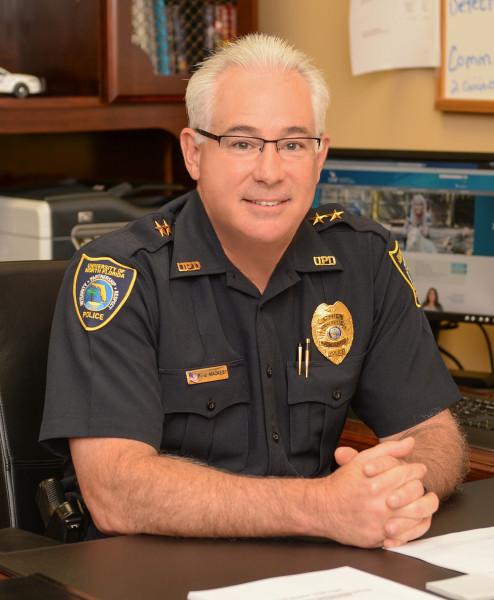In some cases, it can be too easy to believe that tragedies are events that happen to other people in other places; never here, and never to us. However, the recent school shooting in Parkland has proved that sometimes it just hits too close to home.
The time has come to face the reality that no campus is ever completely safe, and Ospreys need to know how to protect themselves in case of the event that there will ever be an incident on campus.
According to Chief Frank Mackesy of the University of North Florida Police Department, most people expect to hear an announcement or an alarm in order to alert them that an active shooter is present.

However, the very first thing that might warn you there’s an active shooter are the sound of gunshots. For this reason, it has become increasingly important for students to stay aware of their surroundings at all times.
In the event that there is an active shooter on UNF’s campus, the official policy of UNFPD is the same as the Federal Bureau of Investigation and the Department of Homeland Security:
“The very first thing we try to teach people is run,” Mackesy explained. “But, we don’t want you running if it’s not safe to do so. That means you have to consider what’s going on around you. We only want you to run when you can get away.”
If you determine you can’t safely run away, the next thing to do is hide.
“When we say hide, what we mean is we want you to go into invisible mode,” said Mackesy. “You put your cell phone on vibrate, you turn off the lights, you make sure you aren’t lighting up the room with your cell phone, and you be as quiet as you possibly can. You don’t want to panic, cry or scream out loud.”
In the event that you need to hide, lock the door immediately and barricade other objects in front of the door if possible. If you’re in a classroom, Mackesy recommends piling as many desks and chairs in front of the door in a manner that is not neat and orderly; rather, arrange them in a way that has legs poking out in every direction.
The key is to make it as difficult as possible for the shooter to get into where you are.
While a lot of people’s first reaction may be to huddle together for safety and comfort, Mackesy says students should instead spread out around the room.
“The harder you make it on the shooter, the more you’ll mess up their thought process, and they won’t have the opportunity to hurt as many people because they’re running into roadblocks,” he said.
If you find yourself in a position where you cannot run or hide, then your last resort is to fight.
Throw anything you can at the shooter, and hit them with anything you can physically swing at their head or a vulnerable spot on their body.
“When I say fight, I mean fight for your life. There are no rules,” Mackesy explained. “Scratch their eyes out. Go for the groin. It’s the fight for your life. You’ve just got to go all in.”
Mackesy also recommends being familiar with warning signs of violent behavior, so that students may actively help to identify and prevent any violent incidents on campus.
For this reason, UNFPD supports what is referred to as “If you see something, say something.”
“That is if you see something and you have the courage to say something, my promise to you is UNFPD will do something with that information,” Mackesy affirmed. “My commitment is we’re going to do something about it, and we’re going to take it as far as we legally can without violating someone’s rights as a police department.”
When asked his thoughts on the deputy who failed to enter the building at Parkland, Mackesy asserted he believes the deputy should have gone inside in an effort to make contact with the active shooter. He wants students to know UNFPD can be trusted to protect them.
“I would expect a [UNFPD] officer to go in alone if it meant saving innocent lives, even if it put [the officer] in imminent danger,” he assured. “It is what we police signed up to do.”
UNFPD’s official page on active shooter safety and awareness can be found here.
—
For more information or news tips, or if you see an error in this story or have any compliments or concerns, contact editor@unfspinnaker.com.















